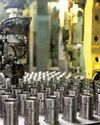
Large firms in the United States (US), despite incurring billions of dollars in this process, have a success rate of less than ten per cent. Especially as the regulatory environment in the US tightens and less capital is available for new biotech ventures, US biotech companies must seriously re-evaluate their approach to testing new therapeutics. While US firms may have a competitive edge in the scientific development of new therapeutics, the principal driver of costs and the most common point of failure is the real-world, clinical testing of these products. This pain point is likely to be exacerbated in the coming years due to the shift towards biologics – a type of drug made using living organisms – which are far less predictable in terms of their expected effectiveness.
Enter India. Over the last few decades, India’s aggregate population has grown and so has the diversity of prevalent diseases within the population. Its infrastructure, specifically digital infrastructure and its penetration to the individual level, has witnessed a phenomenal growth. Additionally, India’s pharmaceutical manufacturing capability has also expanded, with the country often called ‘the world’s pharmacy’. With India’s rise as a global powerhouse in healthcare and increasing domestic pressures on the US biotech industry, a US-India partnership in therapeutics development would be hugely beneficial for healthcare worldwide.
This story is from the {{IssueName}} edition of {{MagazineName}}.
Start your 7-day Magzter GOLD free trial to access thousands of curated premium stories, and 9,000+ magazines and newspapers.
Already a subscriber ? Sign In
This story is from the {{IssueName}} edition of {{MagazineName}}.
Start your 7-day Magzter GOLD free trial to access thousands of curated premium stories, and 9,000+ magazines and newspapers.
Already a subscriber? Sign In

MEMORIES & IMPRESSIONS
Ratan Tata was an exceptional human being. He was a visionary leader, esteemed industrialist, and a humanitarian, who left an indelible mark on India and the world.

The Robotaxi Market
The robotaxi market is shaping up to be a high-stakes battleground as tech giants and automakers race to transform urban mobility.

And the Nobel Prize Goes to AI
The recent Nobel Prize T awards to AI pioneers affiliated with Google have sparked a broader conversation about Big Tech's influence on research and the limitations of traditional prize categories.

Ola Electrified
Once considered a trailblazer in India’s electric vehicle (EV) ecosystem, Bhavish Aggarwal’s Ola Electric now faces a major accountability crisis.

Sharp Slide in Industrial Output on Eve of Deepavali
India’s index of industrial production (IIP) saw a sharp reversal in August, contracting by 0.1 per cent, in stark contrast to the 4.7 per cent growth in July, mostly because of significant contractions in mining and electricity generation.

Heralding the Solar Era with Sustainable Electrification
RAJEEV KASHYAP on the economics of solar power, the hurdles in scaling it, and much more

A WELL-GREASED MACHINE
The OmniBook X14 laptop runs on first-generation Snapdragon X Elite, which bets big on Al-enabled productivity and battery life, but falls short when it comes to overall experience, says Deep Majumdar

DO NOT LETA HEALTH CRISIS RUIN YOUR FINANCIAL HEALTH
For a family of four living in a metro, it is recommended to opt for a family floater health insurance plan with a sum insured of at least Rs 15-20 lakh

Disruption Ahead: Beyond Organisation Charts and Structures
ALBERT EINSTEIN FAMOUSLY said, “We cannot solve our problems with the same thinking we used when we created them.

Dr. Rahul Shivajirao Kadam: A Visionary Leader Blending Sustainability, Innovation, And Social Empowerment
We are on the stage of global warming, and these technologies not only help prevent further damage but also leave behind a better environment for future generations.